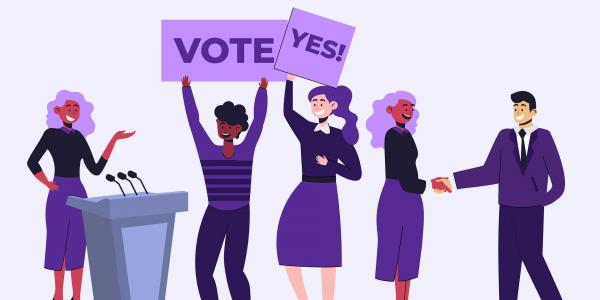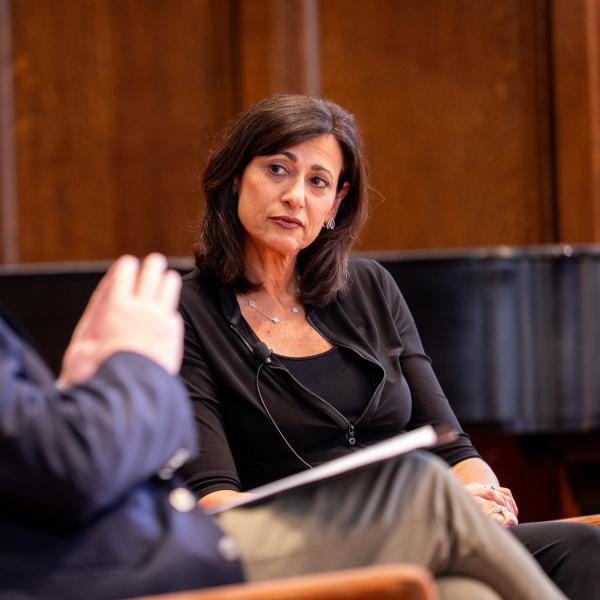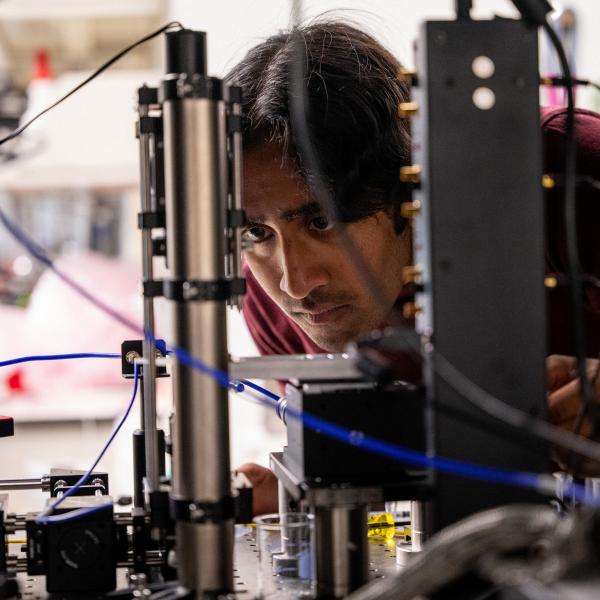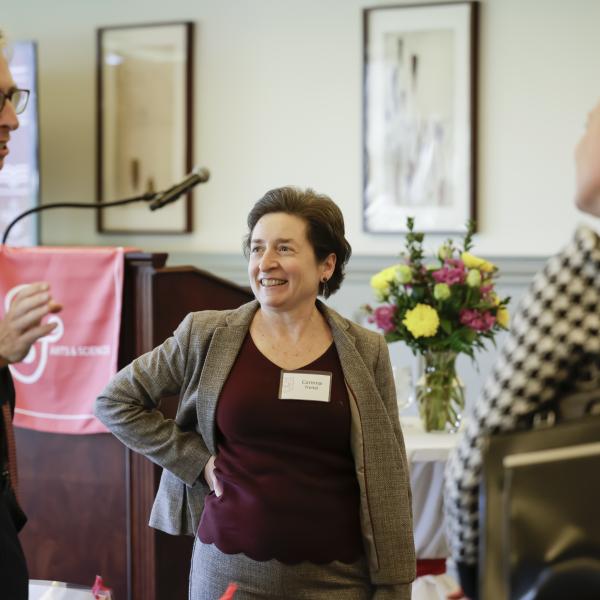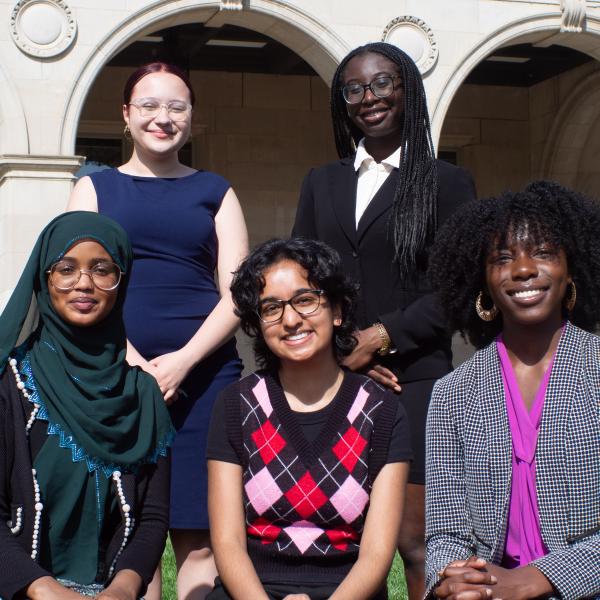This election season, a unique course in Arts & Sciences unites students with a common interest in politics and offers a behind-the-scenes look at political campaigns.
Sitting in their respective living rooms and tuned in via Zoom, students in the political science course “Just Do It! Running for Political Office” have far more questions than the hour-long class allows. They are seeking advice and wisdom about pursuing a career in the ever-unpredictable field of politics. Cort VanOstran, who ran for the U.S. House of Representatives in Missouri’s 2nd Congressional District in 2018, tells students to be their authentic selves if they choose to run for an office. Jason Growe, the former finance chair for the Missouri Democratic Party, encourages them to make sure that they have a “why” before they run for office, something that clearly drives their passion for serving and representing their community. Both VanOstran and Growe agree that there is never a perfect time to run for political office nor a perfect office, so students will have to someday, simply put, just do it.
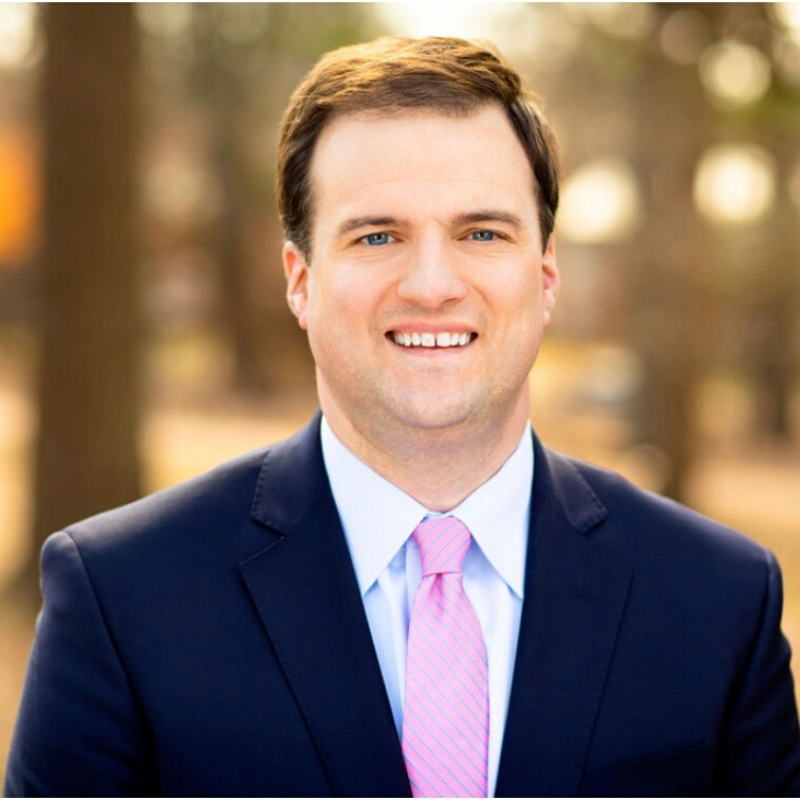
For much of 2020, the public’s attention has oscillated between the presidential election and the COVID-19 pandemic, both of which are, of course, central to a class on political leadership. David Leipholtz, the course instructor and executive director of the St. Louis-based Center for Civic Research and Innovation, sees operating this class in a virtual format as a surprising gift. He’s been able to tap into both his own political network and that of the Gephardt Institute of Civic and Community Engagement, which co-sponsors the class, to feature a host of prominent guest speakers with direct experience being involved with a political campaign.
In light of the current political landscape, Leipholtz has not selected a textbook for the class, opting instead to assign readings the week of class in order to leverage the political developments of the past week. The result is a unique class that allows students to discuss the topics on their mind on any given day. With less than one week until a momentous and highly unusual presidential election, this class is perhaps more timely than ever.
Students also have the opportunity to engage in “campaigns” themselves. Split into small groups and assigned different roles within political campaigns, including candidates, local community and business leaders, and campaign personnel, students engage in lively battles with opposing “candidates,” pitching for donations and ultimately fighting for “election.” These simulated exercises give students a highly realistic experience of the ins and outs of political races.
The course consists of students who range from first-years to seniors and who span various majors, effectively uniting students with a common interest in politics. Whether or not they someday pursue a political office, all students come away from the class with a clear understanding of how campaigns actually operate, from the perspectives of both the candidate and the team behind the scenes.
“It is very valuable to have an understanding of politics and political campaigns because it plays such a prominent role in our system right now,” Leipholtz said. “Washington University students have a real opportunity, and even a responsibility, to impact the world around them and to engage civically. Hopefully, this course piques their interest and gives them a basis to do that work.”
Stephanie Boozalis, a senior in the course who is majoring in psychology and minoring in educational studies and writing, appreciates the fact that the “Just Do It!” course makes politics seem more humane and approachable. “I've always been interested in politics, but the rat race has gotten more and more intimidating and hopeless from my perspective,” she said. “This class helps ground the concepts and makes political positions seem more feasible.”
Most importantly, the “Just Do It!” course is a rare platform for students to engage in meaningful political conversations with the sole purpose of learning. For Leipholtz, that’s what makes this class so special. “Seeing genuine conversations and debate and discussion and reconsideration around politics is not very common anymore,” he said. “And I see it for an hour every week. And for me, it's really energizing.”
